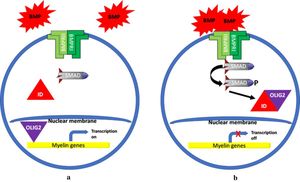The Russian Ministry of Internal Affairs (MVD) has recently announced significant changes to its immigration enforcement strategy, dramatically increasing its powers over undocumented migrants. Effective from February 5, 2025, the new regulations will allow the MVD to expel migrants for various infractions without requiring court approval.
Previously, expulsion required judicial proceedings, but under the newly enacted laws, members of the MVD—including chiefs and deputy chiefs of territorial bodies and certain structural divisions—will now have the authority to make decisions on deportations for administrative violations. These violations include alcohol consumption in public spaces, breaches of stadium conduct rules, and other serious offenses.
According to the MVD, the creation of the 'registry of controlled persons' will be pivotal for monitoring illegal migrants. This database will be updated every four hours and can be accessed online, allowing employers and government entities to check the immigration status of individuals before hiring or providing services. If their name appears on the list, they will face numerous restrictions, including the inability to change residence, leave their current regions, or access public services like education for their children.
The new regulations come as part of Russia's push to evolve its immigration policies, necessitated by the presence of around 670,000 migrants living illegally within the country, half of whom are women and children.
MVD officials elaborated on the specific conditions leading to inclusion on the list of controlled persons, which include overstaying visas, expiration of residency permits, or illegal border crossings. For migrants who find themselves on this registry, several basic rights are curtailed, with severe penalties for repeat offenders. Non-compliance could result not only in deportation but also detention within special facilities run by the MVD.
Despite the looming crackdown, there is temporary relief until April 30, 2025, allowing migrants to legalize their status without leaving the country, provided they submit biometric data, complete medical examinations, display proficiency in the Russian language, and meet various legal responsibilities.
Not all migrants, it seems, are aware of the comprehensive nature of these new laws. Reports of confusion surrounding eligibility and processes have surfaced, indicating potential for widespread issues as deadlines approach. The measures pose serious questions about civil liberties and the treatment of ethnic minorities within the Russian Federation.
Despite criticisms from human rights organizations, the MVD claims to be taking necessary steps to uphold law and order. By tightening regulations and streamlining the expulsions process, authorities assert the aim is to create safer, more stable communities across Russia.
Advocates for migrants warn, though, about the potential for abuse under these new provisions. There are concerns surrounding arbitrary detentions, potential discrimination against specific nationalities, and overall the fostering of negative sentiments among local populations against migrants.
While changes within the MVD are officially justified as means to combat illegal immigration, the methods of implementation will likely warrant close scrutiny as both supporters and detractors of the policy look for signs of efficacy or failure.



